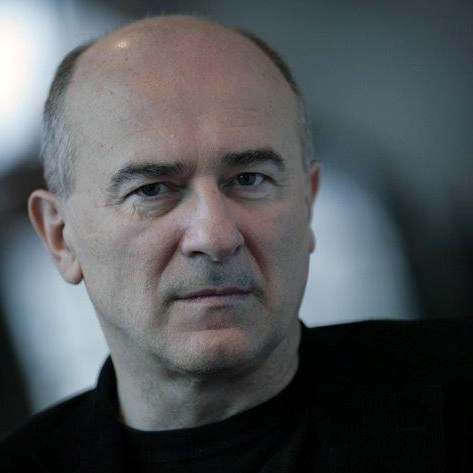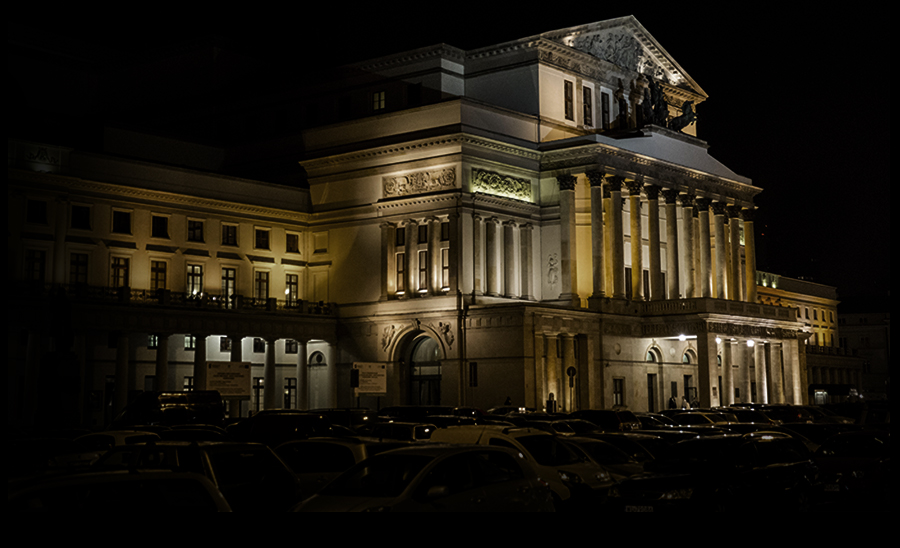
Marek Weiss holds a diploma in Polish Studies from the University of Warsaw (1974) and Stage Direction from the State Theatre School in Warsaw (1980). He made his directing debut in Shakespeare's Troilus and Cressida at the National Theatre in Warsaw. As the director of the Music Theatre in Słupsk (1978–81), he staged several Shakespeare. A scholarship from the British Institute in Warsaw enabled him to complete a course of Shakespearian studies in the UK, which resulted in his award-winning production of Hamlet. He was ultimately offered a full-time job as stage director at the National Theatre in Warsaw, where he staged Beckett's Waiting for Godot. In 1981 he staged the world premiere of Zbigniew Rudziński's opera Mannequins after Schultz, which was presented at the Rennes Festival and the Festival of Nations in Sofia.
From 1982 to 1988 and from 1992 to 1995 he was the chief stage director at the Teatr Wielki in Warsaw. Over that period he directed twenty opera productions in Warsaw, including Mussorgsky's Boris Godunov; Beethoven's Fidelio; Berg's Wozzeck (Polish premiere); Donizetti's Lucia di Lammermoor; Moniuszko's The Haunted Manor; Puccini's Turandot; Rudziński's Mannequins; Verdi's Aida, Macbeth, La Traviata, and Nabucco; Kunad's The Master and Margarita; Joanna Bruzdowicz's The Gates of Paradise; Tchaikovsky's The Queen of Spades; Richard Strauss's Salome; Penderecki's Paradise Lost (Polish premiere); and Gounod's Faust.
For two seasons starting in 1989 he was artistic director of the Północny Theatre in Warsaw. In 1991 he returned to the National Opera and directed two productions for the Teatr Wielki in Łódź: Penderecki's The Devils of Loudun and and Mozart's Don Giovanni. He also produced the latter for the Polish National Opera in 1998 to mark the beginning of Jacek Kaspszyk's tenure as the opera house's general manager. Many of his productions have been presented in Paris, London, Berlin, Munich, Vienna, Moscow, Brussels, The Hague, Luxembourg, Athens, Beijing, Tokyo, Jerusalem, and more than a dozen other cities in Europe and Asia. Out side of Poland, he directed Verdi's Il Trovatore in Sofia; Brecht/Weill's The Rise and Fall of the Town of Mahogonny in Tel Aviv; Verdi's Nabucco in Istanbul; Szymanowski's King Roger and Moniuszko's The Haunted Manor in the United States; Verdi's La Traviata and Donizetti's Lucia di Lammermoor in South Korea, Aida in Belgium and the Netherlands; Mozart's Cosi fan tutte in Bratislava, and Eugene Onegin in Finland. He has presented numerous productions at the festivals in Athens, Vichy, Jerusalem, Xanten, Carcassonne, and Pafos. He was artistic director of the Poznań Opera House in 1995–2001. With this company, he staged the following operas: Verdi's Nabucco, La Traviata and Il Trovatore; the world premiere of Theodorakis's Elektra (Luxembourg, 1995); Puccini's Tosca and Madame Butterfly; Mozart's Le Nozze di Figaro and The Magic Flute; Rossini's Il Barbiere di Siviglia; Richard Strauss's Salome; Penderecki's The Devils of Loudun; Bizet's Carmen; and Mussorgsky's Boris Godunov.
The Polish premiere of Landowski's opera Galina, presented in 1999, was invited to the World Expo 2000 in Hannover. In 2001 his production of Weber's Der Freischütz was performed at the opening of the Wrocław Opera's newly rebuilt stage. With the company he also staged Rudziński's Antigone and Bruzdowicz's Penal Colony, Mozart's The Magic Flute and Le Nozze, as well as Nabucco, Fiddler on the Roof, and Aida at the Centennial Hall. In September 2004 he was appointed Deputy Director for Artistic Affairs of the Polish National Opera. He resigned a year later, after Kaspszyk's dismissal from the post of general manager. He staged the world premiere of Zygmunt Krauze's opera Yvonne, Princess of Burgundy for the Warsaw Autumn festival and brought this production to the Polish National Opera in 2007, receiving the Silver Gloria Artis Medal for Services to Culture from the Minister of Culture. From 2006 to 2014 he has been a full-time stage director at the Warsaw Chamber Opera, where he staged Weber's Der Freischütz, Handel's Julius Caesar, Stravinsky's The Rake's Progress, and Mozart's Cosi fan tutte.
Between 2008 and 2016 he was the general manager and artistic director of the Baltic Opera Gdańsk, where he had previously directed Madama Butterfly, Faust, and Rigoletto. Weiss turned the opera house into a modern institution with castings based on auditions and a young and dynamic Baltic Dance Theatre led by Izadora Weiss. In recognition of these changes, he and his wife Izadora received a range of awards. Marek Weiss's first production was the Mozart triptych: Don Giovanni, Le Nozze de Figaro, and The Magic Flute as well as Tchaikovsky's Eugene Onegin and Richard Strauss's Ariadne auf Naxos, which was presented at the TV Mezzo festival in Seged and broadcast worldwide. In September 2010 during the Solidarity of Arts Festival at the Baltic Opera, Weiss staged Verdi's Macbeth. The BBC television named the Baltic Opera one of the best in Europe in the 2010/22 season. Weiss's production of Strauss's Salome caused a furore. The next season he presented the premiere of Elżbieta Sikora's Madame Curie commissioned by the Baltic Opera. The work was performed in Paris at the UNESCO Auditorium to mark the Maria Skłodowska-Curie Year. At the same time, the Baltic Dance Theatre headed by Izadora Weiss as the chief choreographer was recognised by Jiri Kylian, the artistic director of the Nederlands Dance Theatre, who agreed for the company to stage four of his pieces.
In 2013 Marek Weiss directed Fleischmann’s Rothschild’s Violin, included in the double bill Shostakovich and His Students alongside Andrzej Chyra’s take on The Gamblers by Shostakovich/Meyer, which was named the best opera production of the year in Poland. At the same time, Izadora Weiss’s A Midsummer Night’s Dream was named the best dance theatre premiere in the word by British critics. In the final years of his tenure at the Baltic Opera, Marek Weiss staged Mozart’s Cosi fan tutte, Puccini’s Tosca, Verdi’s Otello, Moniuszko’s The Haunted Manor, and Krzysztof Penderecki’s Black Mask, which was also shown at the Polish National Opera as part of the Ludwik van Beethoven Festival to the acclaim of the critics and a standing ovation of the audience. The production was praised for artistic merit and a brave message calling for the defence of the European values. The artist’s most recent credits include Mozart’s La Clemenza di Tito at the Warsaw Chamber Opera, Puccini’s Turandot at the Podlasie Opera, Saint-Saens’ Samson and Delilah at the Teatr Wielki in Łódź, and Paderewski’s Manru at the Polish National Opera. He subsequently stepped away from theatre to devote his time to writing. He published Boskie Życie, Cena ciała, Brat bies, Antygona w piekle, and Amor królem. Published by PWM Edition, his latest book, Biały wieloryb, a saga about his endeavours as opera creator in Poland and abroad over the last half a century, will be promoted at the Polish National Opera in conjunction with the Dead End premiere.






 ''
''